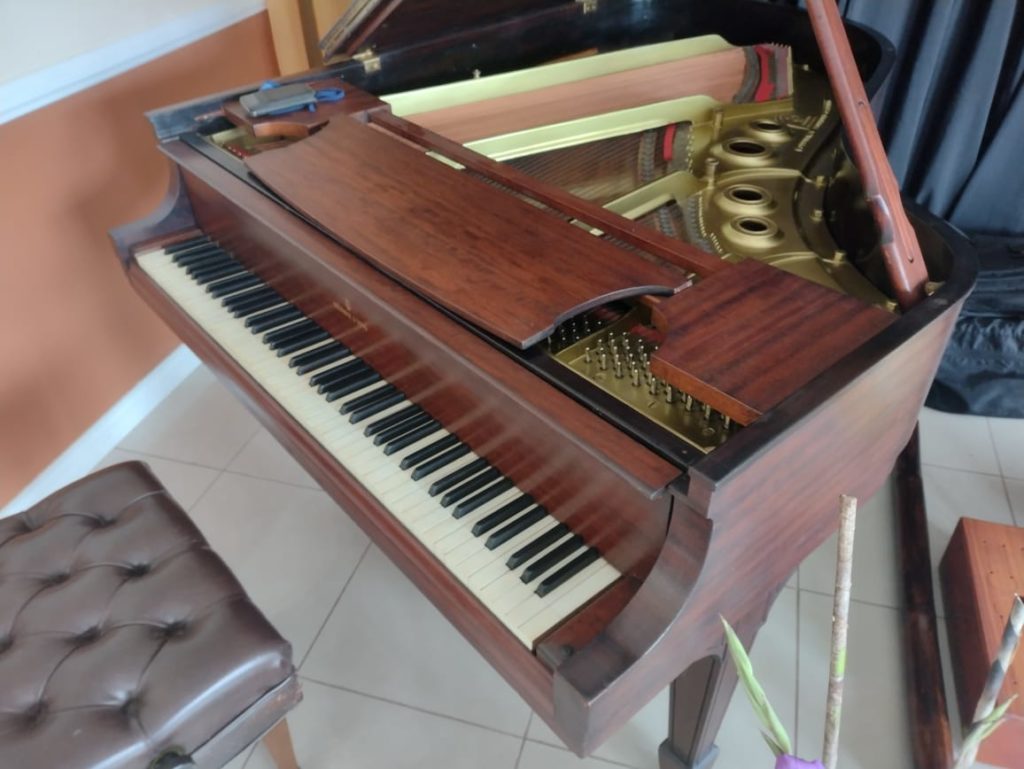“I love trying to spin the world into a web of words. And I love those times when it feels like those words turn into a world of their own.” — Rose Auslander
I am seventeen and practicing the piano. I go at it two hours a day, and no longer need the nagging of my parents, when I used to prefer playing softball after school. The work itself is its own reward, playing a passage over and over at different rhythms, until it comes out smooth as silk.
I rarely practice after dark, since I don’t want to disturb my father, who may have brought work home. But now that I’m on the yearbook committee, there are days when I simply have to. It’s winter and the room is dark except for the light over the piano, and I feel my father’s entrance and his quiet sigh as he sits down well away from the piano and me.
It is near the end of my practice session, when I play something for pure pleasure, and tonight it’s a Schubert impromptu, a piece I love to play, complex and romantic. I am aware that my father is in the room; I am aware of all the ambiguities of our relationship; I know, however, that my ability to play so well has pleased him, and that falls into the complexity of Schubert, me, my father, the abuse, all the pain of never knowing if he has loved me or not.
Somehow, I throw myself into the music, I become the music, the music — Schubert — is playing me. It’s transformative. I am no longer in this darkened living room. My father is still here, because there is a musical line connecting us, and I thrill as the phrases and chords and notes become a world of their own — a world described by incredible beauty and freedom. And at the end, I bow my head over the keys and feel full of the act of love I have just performed.

